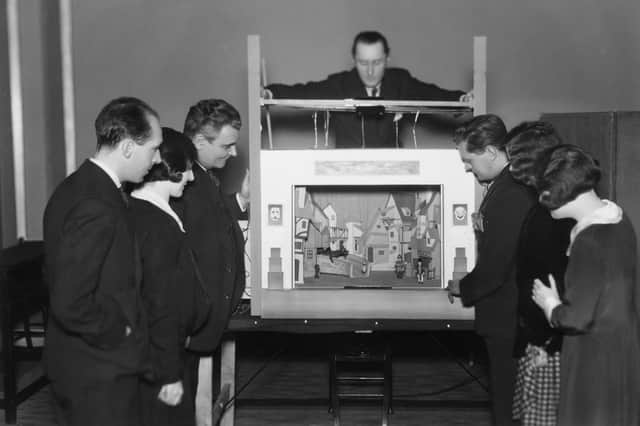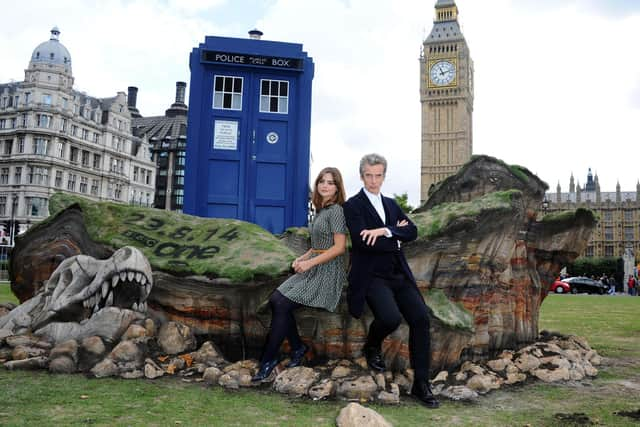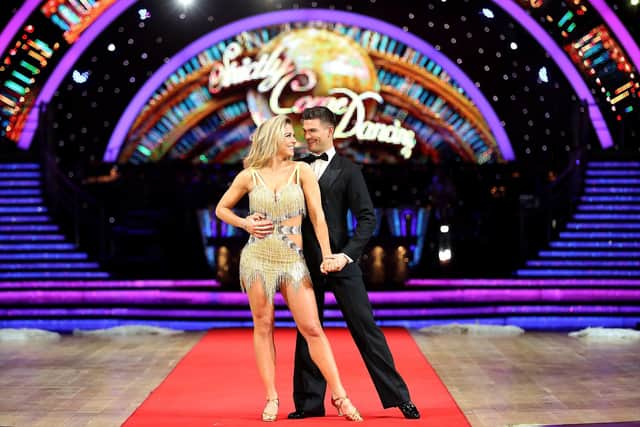BBC's 100th anniversary: Aunty Beeb has been a faithful friend to the nation and I hope she continues to be so – Christine Jardine
This article contains affiliate links. We may earn a small commission on items purchased through this article, but that does not affect our editorial judgement.


Auntie Beeb turns 100 today with the anniversary of the first of the corporation's daily broadcasts in 1922. And while we have celebrated her high-profile successes like Strictly, coverage of the Queen’s funeral, major sporting events, Blue Peter, Doctor Who and so many more, there are successes closer to home that we should not overlook.
BBC local radio might be a less celebrated member of this family but for many communities it is the very epitome of public service broadcasting. At this point it is possibly best to admit that I am a little biased. It was on BBC Radio Aberdeen that I gained my first foothold in broadcasting before moving on to the heady climes of Radio Scotland and then BBC TV.
Advertisement
Hide AdAdvertisement
Hide AdEven now I cannot hear a fishing report without being transported back to those early morning bulletins in the famous Beechgrove studios – still the home of the BBC in the Granite city. As a Glasgow quine, I did not initially understand the significance of the landings and the figures, or the shipping report for that matter. But over time I realised that what I was imparting was part of the rhythm of life along our coast. A vital information service for one of our biggest industries and its people.
It was also where I first interviewed the future First Minister Alex Salmond when he was MP for Banff and Buchan and the Scottish Parliament was no more than a gleam in the eye of Liberal Democrat and Labour politicians. Of course, I am not alone in my ties to local radio. Many of Scotland’s most influential broadcasters cut their teeth in studios from Shetland to Selkirk.
Even now, ask any politician and they will tell you that the bulletin that they really want to be on is their BBC local radio station. So surely there is an argument to be made that the very epitome of public service broadcasting are those local stations where we can hear the news with the biggest impact closest to our own communities?
Moreover, if you look closely at its history, what you will see are the very roots of the BBC. In 1922, the British Broadcasting Corporation was originally an umbrella organisation of local radio stations connected to London by telephone and broadcasting to the nation. It was not until 1965 – two years before the launch of Radio 1 – that the original network re-emerged in a more modern format.
Since then, on some of the darkest nights for this country, it is our local radio stations and their reporters who have spoken directly, often first to those most closely involved. At Lockerbie, Piper Alpha or the Braer disaster off Shetland, BBC local reporters were there. And in each of them, long before satellite and mobiles made transmission from anywhere possible, our local studios played host to the visiting stars of the network and provided the support they needed to get on air.


I remember coming back into work the morning after the Piper Alpha disaster, having left exhausted only a few hours before to find that network news had now invaded both our newsroom and our car park. For the next few days, we worked hand in hand ensuring every detail was reported accurately to anxious families both in Aberdeen and across the country.
A young Jeremy Bowen was covering his first major story and managed to charm me, I am still not sure how, into giving him the fresh salmon I had ordered so he could take it back to London. But in that story, and in others later, I learned first-hand what it is that the BBC can offer this nation that no other radio or TV company can.
In the final analysis, all that matters to the BBC is the news itself and getting it right. Not its value to the government or some opposition-supporting billionaire or even those intent on breaking up the UK, but just the cold hard facts of the story.
Advertisement
Hide AdAdvertisement
Hide AdIn Piper Alpha we cared only about reporting how it had happened, the lives it had touched and how we could protect those who delivered our vital energy resources from it happening again. There was not then, nor I believe now, any other agenda whether the news comes from Broadcasting House in London or the studios of BBC Radio Shetland in Lerwick.


This is a service that is purely there to educate and inform. It reflects who we are and what is happening in our towns and cities, often on an hourly basis, without the interference of any would be, or actual, media tycoon.
Over the years the BBC has awakened us to the famine in Africa in the 1980s, given us some of the most memorable dramas, and made us laugh with Morecambe and Wise, French and Saunders and Victoria Wood.
And all for the price of the license fee. This morning the Today programme on BBC Radio 4 will have brought me up to date on international news. At some point this evening I shall sit down and watch one of my favourite programmes that the ground-breaking iPlayer allows me to catch up on at a time to suit my ridiculous schedule. I might laugh, or perhaps shed a tear.
But I know I will be doing it with a faithful friend who has been with me since Andy Pandy, the Magic Roundabout and Play School and I hope will be there for the duration. Thank you, Auntie, and here’s to the next hundred.
Christine Jardine is the Scottish Liberal Democrat MP for Edinburgh West
Comments
Want to join the conversation? Please or to comment on this article.